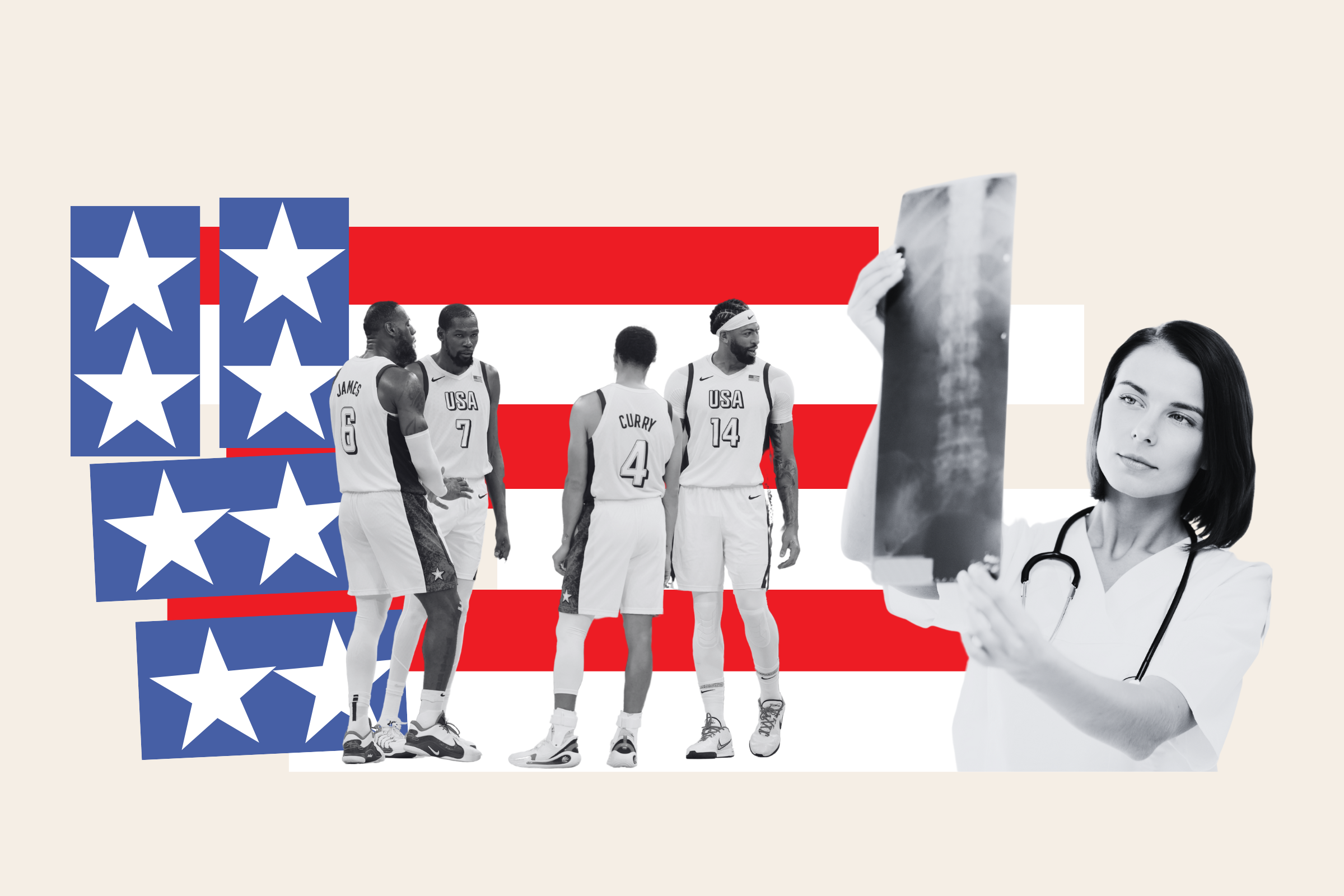What do recreational pickleball players and the U.S. Olympic basketball team have in common? They both turn to UCLA Health for medical support!
Recently, UCLA Health became the official medical team for USA Basketball, providing comprehensive orthopedic and sports medical care for both the men’s and women’s teams. This partnership includes support during the Paris Olympics and the upcoming 2028 Games in Los Angeles.

The collaboration has been building over the past two years. UCLA has a rich history of caring for prominent sports teams, including the Lakers, Dodgers, Sparks, and Chargers, and more recently, Red Bull athletes.
What sets this partnership apart is the extensive support from the entire UCLA team. Traditionally, a couple of doctors would serve a sports team, but now athletes can access a wide range of specialists—dentists, ophthalmologists, psychiatrists, physical therapists, and performance scientists—all dedicated to enhancing their performance.
“Sports medicine functions like a microcosm of broader medical practice,” explained Bernthal. “By providing multidisciplinary expertise, we can greatly improve performance outcomes.”
As of August 1, five UCLA physicians were in France, supporting the athletes across various competition venues. This mobile medical operation requires flexibility, as healthcare professionals travel with the teams from training camps in Las Vegas to showcase games in London and Abu Dhabi.
As per the agreement, two doctors are present at every game and practice, ready to address a range of medical situations—from sprains and fractures to potential illnesses like COVID-19. International travel means being prepared for unexpected allergies or even emergency events requiring quick hospital transfers. Fortunately, UCLA’s global network can connect patients with top-tier hospitals abroad.
“USA Basketball has taken great care to ensure these athletes are safeguarded against numerous potential challenges while competing internationally,” Bernthal noted. “With our extensive health system behind them, it feels like a cohesive medical team instead of just having individual team doctors.”
The challenges don’t just lie with the athletes. NBA players face grueling schedules, often requiring medical assistance during what would typically be a time for recovery. “Competing intensely during their downtime poses significant medical hurdles,” Bernthal stated. “We need to ensure they can perform at their best during a time meant for recuperation.”
The pressure to deliver results on an international stage is high, but for Bernthal, the focus remains the same—whether managing a game or addressing patient needs back in the clinic. “Regardless of the location, physicians face pressure, but we must zero in on the health issues to effectively care for our patients,” he said.
“Ultimately, our commitment is to the individual patient, whether they’re elite athletes or everyday weekend warriors,” Bernthal emphasized. “Every patient receives dedicated care—no matter their level of activity.”
Innovations born in professional sports medicine benefit everyone. For instance, plate-rich plasma treatments originated in elite sports but are now widely used in various recovery contexts.
With his background as a former basketball player at Princeton, Bernthal has observed that both athletes and recreational participants share similar expectations from their healthcare providers. “People want to return to their activities without health concerns weighing them down,” he said. “We aim to address the athlete in everyone.”
